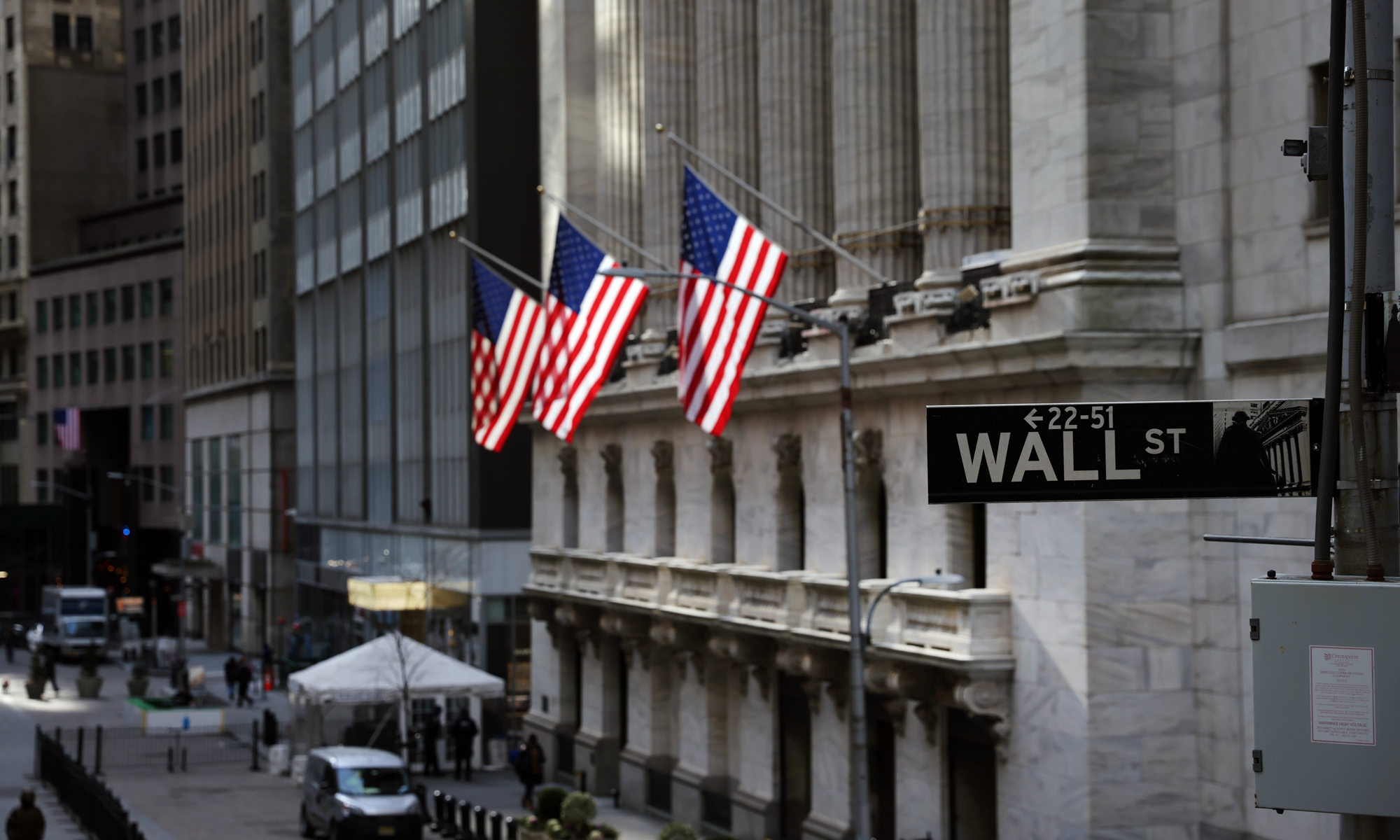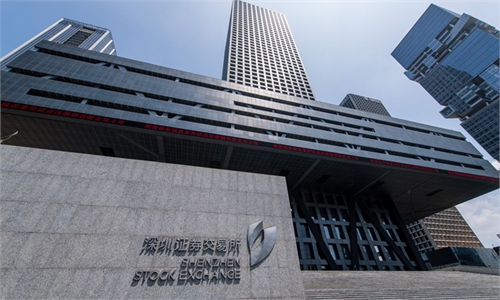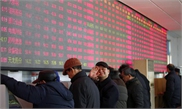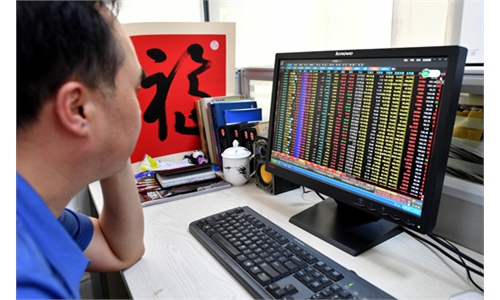Ultra-loose policy fuels GameStop saga, indicating extension of disruption in economic spheres into capital market: analysts
Market split over whether correction brewing in US stocks

Wall Street Photo: AFP
Wild swings that have gripped certain US stocks, notably loss-making US videogame retailer GameStop, see low-key retail investors in the world's largest equity market shooting to prominence in an epic war against Wall Street professionals.
The unprecedented confrontation, indicative of an extension of disruption in the political and economic spheres into the capital market, is essentially fueled by the US' ultra-loose monetary policy that has pitted retail investors against Wall Street, Chinese market watchers said on Sunday.
However, they remain split over whether US stocks are heading for a correction.
The US stock market started this year on a stunning note, with GameStop typifying a selection of highly shorted stocks that spark fierce battles in which retail traders beat down their Wall Street counterparts.
The "revolution" waged by US retail investors in defiance of institutional traders points to consensus-breaking that initially began in the political and socioeconomic arenas and has now extended into the capital market, Dong Shaopeng, a senior research fellow at the Chongyang Institute for Financial Studies of Renmin University of China, told the Global Times on Sunday.
"Retail investors refused to follow suit after professional institutions unveiled their preferences, arguably a sign of opposition."
The storming of the US Capitol in early January was already widely seen as exemplifying a fragmented democracy.
A flock of at-home traders jumped onto the bandwagon of the "WallStreetBets" Reddit chatroom, where there have been advocates for long positions in these stocks that also include American Airlines and AMC Entertainment Holdings. They've gone on a buying spree of shares and call options to an extent that sent shares skyrocketing and eventually squeezed notable short sellers such as Melvin Capital and Citron Research.
Short selling is an investing strategy that allows for traders to borrow shares of a company at a certain price, anticipating a decline in the price when repaying the borrowed shares.
Take GameStop. Its shares soared more than 16 times in January to close at $325 on Friday, far above the $20 that Citron Research forecast in a tweet on January 19.
Both Melvin Capital and Citron Research surrendered bearish bets, closing their short positions on the videogame vendor, US media reported, with the former posting a huge loss.
More surprisingly, short selling guru Citron Research said on Friday that after 20 years, it will stop publishing short reports and will instead pivot to long positions.
Explaining the rare victory of retail investors, traditionally a lesser-known force in the US market where institutional investors play a dominant role, Wu Jinduo, head of fixed income at the research institute of Great Wall Securities, said that the US Federal Reserve's ultra-loose monetary policy should be held accountable.
As part of moves to revive the pandemic-plagued US economy, the Fed slashed interest rates to zero and implemented unlimited quantitative easing, and as a result, US stocks stabilized since the second quarter of last year. But it is Wall Street that has benefited the most from the Fed's easing and ultimately inspired antagonism among retail investors toward Wall Street, Wu told the Global Times on Sunday.
The monetary easing plus commission-free online brokers such as Robinhood have made stock investment increasingly accessible to average Americans, she believes.
The US coronavirus stimulus package that included direct cash payments to low- and middle-income Americans, intended to pull the US economy out of recession, actually sowed the seeds of chaos in its equity market, experts said, with many individuals using the money to trade stocks.
The US economy contracted 3.5 percent in 2020, its deepest setback since 1946, official data showed on Thursday.
The unforeseen adverse implications of the US stimulus stand in stark contrast with a virus-battling centric approach to reboot the economy in China, which avoided a flood-like stimulus, experts said.
The Chinese economy ended 2020 with a 2.3-percent expansion, setting itself apart from many countries and regions that relied on money printing to reinvigorate their economies.
With speculative bets concentrating on the likes of GameStop weighing on the US market, which saw all three major US stock indices receding from their historic highs over the past week, there has been a heated debate about whether a correction is coming for US stocks.
"It's hard to tell whether the US stock market is at its peak, as no one knows where that is," Wu commented, noting that there is a strong chance of a US economic recovery in the second half of the year, resulting in marginal improvements in US companies' earnings and economic fundamentals.
In the eyes of Dong, recent losses by US stocks are a reflection of bubbles being squeezed out of the market.
He expected US stocks to see a 30-40 percent correction over the coming six months, which could have a psychological impact on the A-share market.
Underpinned by a robust economic rebound, the flagship Shanghai Composite Index is still on a path to climb to as high as 4,000 points this year, according to Dong.
The Shanghai index shed 0.63 percent to finish last week below 3,500 points.



